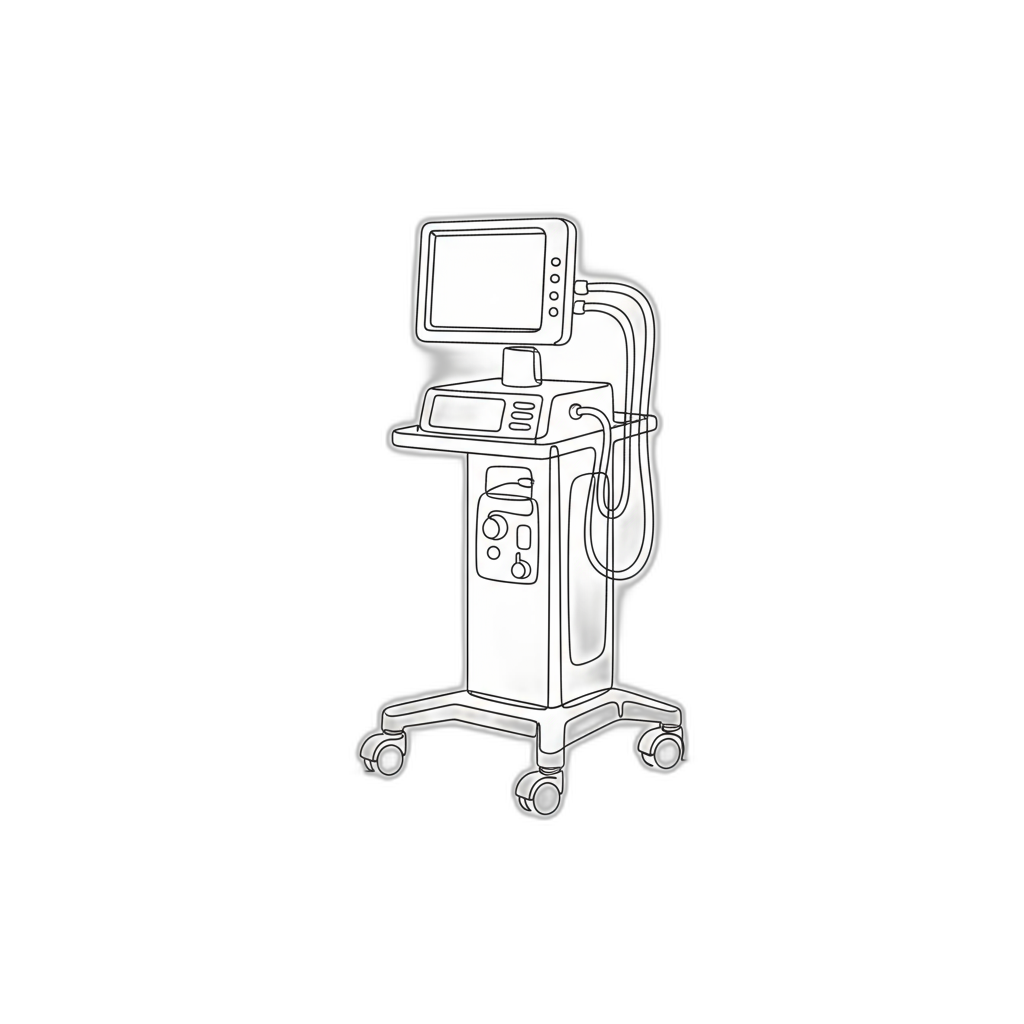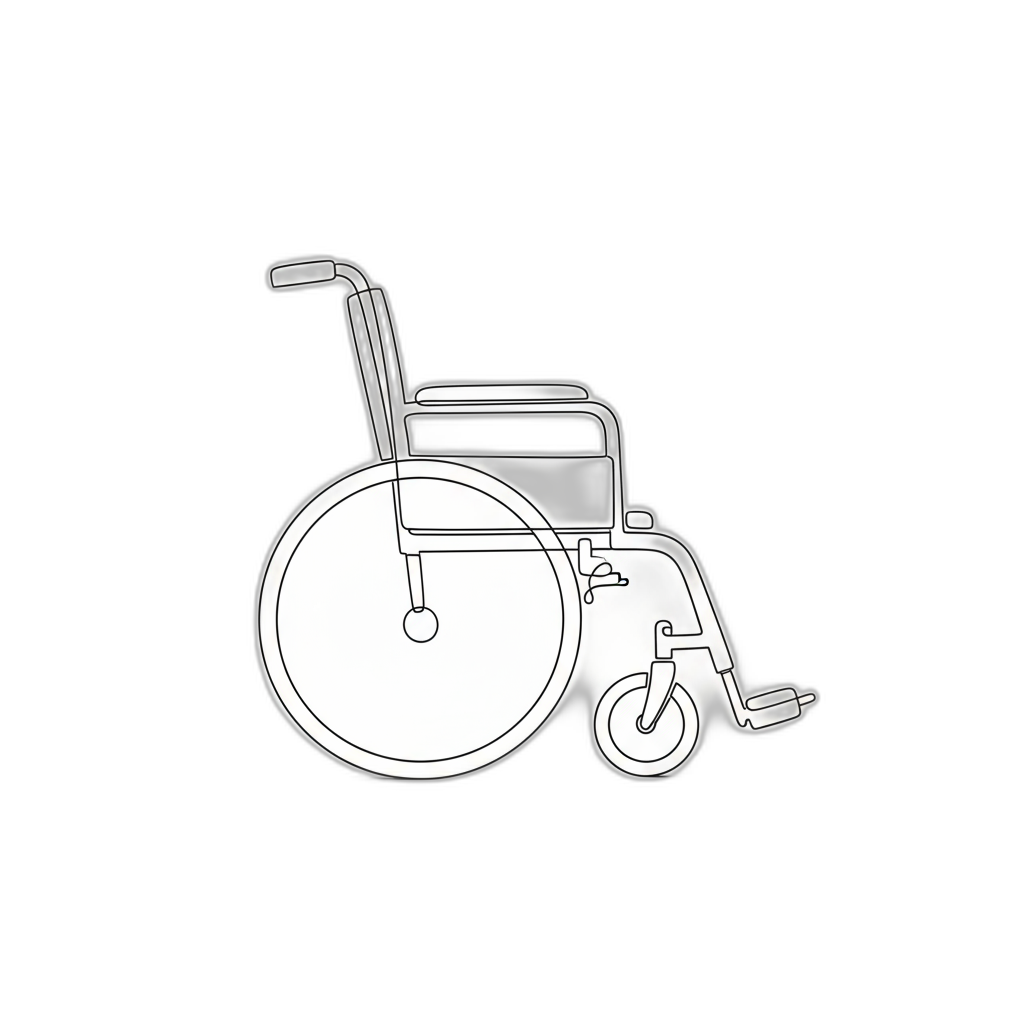






5-Star Service, Trusted & Loved by Hundreds
Your Appraiser Search Ends Here
Your Appraiser Search Ends Here
.avif)

Nationwide Coverage – Appraisals Anywhere in the US

Get it done Onsite or Online

Any Asset, Covered

Defensible for Any Purpose
Frequently Asked
Questions
No Frequently Asked Questions Found.
The form captures a comprehensive range of assets, including both tangible and intangible property such as real estate, financial investments, business interests, cash holdings, and personal property. Its primary function is to calculate the gross estate value and identify any potential estate tax that may be owed based on the current federal exemption threshold.
Typically, the executor or personal representative of the deceased's estate is responsible for completing and filing Form 706. The filing becomes mandatory when the total estate value surpasses the current federal exemption limit, which can fluctuate annually based on current tax legislation.
The form itself is structured into multiple critical sections, each designed to provide a comprehensive financial overview. These include detailed reporting of gross estate value, allowable deductions such as outstanding debts and funeral expenses, precise tax computations, and documentation of any previous payments or available credits.
Importantly, Form 706 must be filed within nine months of the date of death, though extensions can be requested for filing purposes. While not every estate requires this filing, careful and accurate completion is essential to ensure proper tax compliance and avoid potential legal complications for estate beneficiaries.
Establishing a precise fair market value is paramount. The IRS requires an objective, professional evaluation of each asset at its value on the date of the decedent's death. This valuation becomes the cornerstone for calculating potential estate tax liabilities, ensuring transparency and accuracy in the reporting process.
Tax calculations demand meticulous attention to detail. Even slight variations in asset valuation can significantly impact the estate's tax burden. Undervaluing assets may trigger unexpected tax penalties, while overvaluation can unnecessarily strain the estate's financial resources. A comprehensive, professional appraisal minimizes these risks by providing a defensible and accurate assessment.
Legal protection is another crucial consideration. A professionally conducted appraisal creates a documented record that can preempt potential disputes among heirs, beneficiaries, or creditors. Should an IRS audit occur, this documentation serves as authoritative evidence, potentially shielding the estate from costly legal challenges.
Charitable contributions require equally rigorous valuation. When estates include philanthropic bequests, precise appraisals substantiate these donations for both IRS requirements and receiving organizations. This careful documentation can optimize tax considerations and ensure the donor's intentions are fully realized.
Asset distribution becomes more transparent with accurate valuations. An objective assessment provides a clear framework for equitable distribution among beneficiaries, reducing the potential for interpersonal conflicts during an already challenging time.
State-level regulations add another layer of complexity. Many states impose additional appraisal requirements that extend beyond federal mandates. Engaging professionals with comprehensive knowledge of both federal and state regulations ensures complete compliance across all jurisdictions.
Complex assets demand specialized expertise. Properties, businesses, unique collections, and other intricate holdings require nuanced evaluation. Qualified appraisers bring the necessary technical knowledge to accurately assess these specialized assets, providing a comprehensive and reliable valuation.
Ultimately, a professional appraisal for IRS Form 706 is more than a bureaucratic requirement. It represents a critical tool for responsible estate management, protecting the financial interests of both the estate and its beneficiaries while ensuring full compliance with regulatory standards.
The valuation encompasses a holistic examination of the equipment's current condition, operational functionality, technological relevance, and potential market demand. Professional appraisers conduct an in-depth analysis that goes beyond simple numerical calculations, integrating complex considerations such as equipment age, technological sophistication, compliance with current healthcare standards, and potential future utility.
Specialized appraisers utilize advanced methodological approaches to establish an accurate and defensible valuation. This involves extensive market research, comparative analysis of similar equipment, thorough inspection of physical and operational characteristics, and careful consideration of industry-specific depreciation standards.
The appraisal process considers multiple dimensions that impact equipment value, including technological obsolescence, maintenance history, regulatory compliance, and potential for future use. Each piece of medical equipment is evaluated with precision, recognizing that medical technology represents a significant financial investment for healthcare institutions.
These comprehensive assessments serve critical functions across the healthcare ecosystem, providing essential insights for financial planning, asset management, insurance documentation, and strategic decision-making. By offering an objective, detailed evaluation, medical equipment appraisals enable healthcare organizations to make informed choices about their technological resources and investments.
Clients can initiate an online appraisal by submitting detailed documentation about their medical equipment. This typically includes high-resolution photographs, precise model numbers, equipment specifications, and a comprehensive description of its current condition. Professional appraisers utilize these digital submissions to conduct thorough and reliable assessments.
Advanced digital platforms now enable interactive appraisal experiences through video conferencing technologies. These virtual consultations allow direct communication between appraisers and clients, facilitating real-time equipment demonstrations and immediate clarification of technical details. Such approaches ensure a transparent and comprehensive valuation process.
Every online medical equipment appraisal adheres to the Uniform Standards of Professional Appraisal Practice (USPAP), guaranteeing professional integrity and compliance across different states. The digital methodology maintains the same rigorous standards as traditional in-person assessments, providing clients with reliable and legally recognized valuation documentation.
The online appraisal process offers significant advantages, including convenience, reduced wait times, and broader accessibility. Clients can now receive professional equipment valuations from anywhere, streamlining what was once a complex and time-consuming process.
Different types of appraisers bring unique perspectives and skill sets to their evaluations. Clinical appraisers concentrate on equipment actively used in patient care environments, examining performance, technological capabilities, and regulatory adherence. They often develop expertise in specific domains like diagnostic imaging, surgical technologies, or patient monitoring systems.
Financial appraisers apply a quantitative lens, analyzing market dynamics, economic trends, and potential return on investment. Their assessments are particularly valuable for healthcare organizations seeking precise valuation for resale, financial reporting, or strategic asset management.
Technical appraisers leverage deep engineering and technical knowledge to comprehensively assess medical device functionality. They scrutinize equipment age, maintenance history, operational performance, and technical specifications to determine comprehensive market value.
Regulatory appraisers specialize in ensuring medical equipment meets stringent health and safety standards. Their evaluations consider compliance history, certification requirements, and alignment with current regulatory frameworks, providing crucial insights for healthcare providers navigating complex compliance landscapes.
Estate appraisers focus on medical equipment valuation during asset distribution scenarios, such as professional retirement or estate settlements. They provide objective, market-aligned assessments that support fair and accurate asset valuation.
The selection of an appropriate medical equipment appraiser depends on the specific evaluation objectives, ensuring stakeholders receive precise, contextually relevant valuations that support informed decision-making.
Financial reporting relies heavily on accurate equipment valuation. By establishing precise current market values, healthcare providers can optimize depreciation calculations, enhance asset management strategies, and create more transparent financial statements. This precision supports better budgeting and resource allocation decisions.
Taxation compliance represents another crucial aspect of medical equipment appraisals. When organizations consider equipment donations or need to document asset values, a professional appraisal becomes indispensable. These assessments help prevent potential tax complications and ensure regulatory adherence, particularly for donations exceeding specific monetary thresholds.
Insurance coverage requires meticulous valuation to protect significant medical equipment investments. An accurate appraisal guarantees that insurance policies genuinely reflect replacement costs, mitigating risks of underinsurance during potential loss, damage, or theft scenarios.
Legal proceedings often demand objective third-party equipment valuations. Whether resolving partnership disputes, managing organizational transitions, or navigating complex litigation, a professional appraisal provides authoritative documentation of asset worth, facilitating fair negotiations and informed decision-making.
Mergers, acquisitions, and equipment transactions also benefit significantly from comprehensive appraisals. Buyers and sellers can establish fair market values, negotiate confidently, and understand the true economic implications of medical equipment investments.
By embracing systematic medical equipment appraisals, healthcare organizations transform asset evaluation from a routine administrative task into a strategic management tool that supports financial integrity, operational efficiency, and long-term organizational planning.
Understanding IRS Form 706: An Overview
IRS Form 706, also known as the United States Estate (and Generation-Skipping Transfer) Tax Return, is a crucial document used for reporting the value of an estate after the death of an individual. This form is essential for estates that exceed the federal estate tax exemption limit, which is periodically adjusted. The information provided on Form 706 is vital for determining the tax liability and ensuring compliance with federal tax laws, making accuracy in reporting critical.
When it comes to reporting medical equipment on Form 706, it is important to establish the fair market value (FMV) of each item included in the estate. Medical equipment can range from diagnostic machines to durable medical aids, and their value can fluctuate based on various factors such as age, condition, and demand in the secondary market. Understanding the nuances of how these assets are appraised will help executors present a clearer picture of the estate's value and adhere to IRS requirements.
In addition to accurate appraisal, proper documentation of the medical equipment is necessary for the form's completion. This can involve compiling purchase receipts, maintenance records, and documentation of any updates or modifications made to the equipment. Executors should be prepared to substantiate the reported values to avoid potential disputes with the IRS, making the appraisal process not just a matter of compliance but also one of thorough record-keeping and due diligence.
The Importance of Accurate Appraisals for Medical Equipment
Accurate appraisals for medical equipment are crucial, particularly when it comes to IRS Form 706, which is used for estate tax purposes. When executors are tasked with filing this form, they need a precise valuation of all assets, including medical devices, to ensure compliance with tax regulations. An accurate appraisal not only helps in maintaining transparency with the IRS but also establishes a fair market value, which can be essential for the estate's beneficiaries and the overall distribution of assets.
Medical equipment can vary significantly in value based on factors such as age, condition, and technological advancements. Without a professional appraisal, there's a risk of underestimating or overestimating the worth of these items, leading to potential legal and financial issues. Moreover, given the rapid evolution of medical technology, keeping up-to-date with current market trends is imperative for obtaining an accurate valuation that reflects true market conditions.
Inaccurate valuations can result in penalties from the IRS or disputes among beneficiaries, complicating the already challenging process of estate division. Furthermore, an expert appraisal can provide vital documentation supporting the value assigned to the equipment, which can be beneficial during audits or disputes. Thus, engaging qualified appraisers who specialize in medical equipment is an important step that should not be overlooked in estate planning and management.
Key Factors Influencing the Value of Medical Equipment
The value of medical equipment is influenced by several key factors that appraisers consider when determining fair market value for IRS Form 706. One significant factor is the age and condition of the equipment, as newer models typically hold greater value due to advancements in technology and functionality. Additionally, the maintenance history plays a critical role; well-maintained equipment is likely to command a higher price than those showing signs of wear and tear or lack of servicing. Market demand also impacts valuation, as certain types of equipment may become obsolete while others are in high demand due to industry trends or technological developments.
Another important factor is the equipment's original purchase price and how depreciation affects its current value. Appraisers will analyze comparable sales, which involve reviewing recent transactions of similar items to establish a baseline valuation. Certification and conformity to regulatory standards can also enhance equipment value, as items meeting specific safety and operational guidelines are more desirable. Understanding these factors not only aids in accurate appraisals but also helps stakeholders make informed decisions regarding asset management and estate planning.
Types of Medical Equipment Commonly Appraised
Medical equipment appraisals encompass a wide range of devices and tools essential for providing healthcare services. Notable categories include diagnostic equipment such as MRI machines, CT scanners, and ultrasound devices, which play a crucial role in patient assessment and treatment planning. Therapeutic equipment, including infusion pumps, surgical instruments, and rehabilitation devices, also fall under this appraisal category and are vital for patient recovery and management.
In addition to diagnostic and therapeutic equipment, other assets such as dental equipment, laboratory instruments, and even office furniture must be considered during an appraisal. Understanding the specific type of equipment is essential in determining its fair market value, especially for tax-related purposes like IRS Form 706. Each medical device may have unique factors influencing its value, including age, condition, and technological advancements, making accurate appraisals imperative for effective financial planning and compliance.
When is a Medical Equipment Appraisal Required for Form 706?
A medical equipment appraisal is often required when preparing IRS Form 706, which is the United States Estate (and Generation-Skipping Transfer) Tax Return. This form is typically filed by the executor of an estate when the decedent's assets exceed the federal estate tax exemption threshold. To accurately report the value of medical equipment owned by the deceased, a professional appraisal is essential, as it provides an unbiased estimate based on the equipment's condition, market demand, and relevant industry standards.
Accurate appraisals are crucial not only for compliance with IRS regulations but also for ensuring that heirs and beneficiaries receive their fair share during the estate settlement process. Medical equipment can vary significantly in value based on its age, usage, and technological advancements, making it vital for appraisals to reflect these factors. Furthermore, submitting a thorough appraisal can help mitigate potential disputes among heirs and reduce the risk of penalties from the IRS due to misreported values.
Selecting a Qualified Appraiser for Medical Equipment
Selecting a qualified appraiser for medical equipment is a crucial step in the appraisal process, especially when preparing IRS Form 706 for estate tax purposes. A competent appraiser will possess not only the necessary experience in valuing medical equipment but also a strong understanding of the relevant laws and regulations. It is essential to ensure that the appraiser has specialized knowledge in the healthcare industry, as the valuation of medical equipment involves unique factors that differ from standard asset appraisals. Moreover, familiarity with the specific types of equipment, such as imaging devices or surgical instruments, can significantly influence the accuracy of the appraisal.
When evaluating potential appraisers, consider their credentials, industry expertise, and previous appraisal experience relevant to similar assets. Look for designations from recognized organizations, such as the American Society of Appraisers or the International Society of Appraisers, as these indicate a commitment to professional standards. Ask for references or sample appraisals to gauge the quality of their work, and ensure they provide a well-documented report that adheres to IRS requirements. This due diligence not only protects the integrity of the appraisal report but also ensures compliance with tax regulations, ultimately safeguarding the interests of the estate.
The Appraisal Process: What to Expect
The appraisal process for medical equipment begins with a comprehensive evaluation conducted by a qualified appraiser. This expert will gather necessary information about the equipment, including its make, model, condition, and any relevant documentation such as purchase invoices or service records. This initial step is crucial in establishing an accurate value, as it allows the appraiser to understand the specific attributes that may influence pricing, including age, usage, and market demand.
Following the initial assessment, appraisers often perform market research to compare similar items and determine fair market value. This analysis may include reviewing recent sales data, industry reports, and other pertinent resources to establish a well-rounded view of the equipment's worth. Additionally, an appraiser will consider factors such as technological advancements and potential depreciation that can affect the equipment's value over time.
Once the research is completed, the appraiser will compile their findings into a formal appraisal report. This document will detail the methodology used, provide a final valuation, and include any recommendations for future considerations. For IRS Form 706, which is related to estate tax, it is essential that the appraisal is both comprehensive and compliant with IRS requirements to ensure the accurate reporting of the medical equipment's value in estate matters.
Documentation Needed for a Medical Equipment Appraisal
When preparing for a medical equipment appraisal, it is essential to gather comprehensive documentation to ensure accuracy and compliance, especially when reporting for IRS Form 706. Essential documents include purchase invoices, service records, and any prior appraisals or evaluations that provide insight into the equipment's history and value. Additionally, maintenance logs can offer valuable information about the condition and longevity of the items, which significantly impacts their appraisal value. Collecting this information ahead of time not only streamlines the appraisal process but also aids appraisers in making informed evaluations.
In addition to historical documents, prospective appraisers may require information about the equipment's current market conditions, including resale values and comparable sales data. Data from relevant industry publications or recent market surveys can enhance the appraisal's accuracy. Furthermore, specifications and technical manuals for the medical equipment should be available, as they help appraisers understand its functionality and relevance in the medical field. Providing a thorough and organized collection of documentation facilitates a more precise and comprehensive appraisal, ensuring that all relevant factors are considered.
Common Mistakes to Avoid in Medical Equipment Appraisals
When conducting medical equipment appraisals, one of the most common mistakes is underestimating the importance of proper documentation. Many appraisers fail to collect sufficient information about the equipment's condition, age, and maintenance history. Accurate documentation is essential, as it provides a comprehensive overview of the equipment's value and helps to justify the appraisal results to the IRS and other stakeholders. Neglecting this aspect can lead to inflated values or significant discrepancies in the appraisal process.
Another frequent mistake is overlooking the impact of market conditions on equipment value. Medical technology can rapidly change, and equipment that was once cutting-edge may become obsolete within a short period. Appraisers must stay informed about current market trends and comparable sales to ensure valuations reflect the true worth of the equipment. Failing to account for these dynamics can result in appraisals that are not aligned with the market, potentially leading to complications during audits.
Lastly, it is crucial to avoid using only one method of valuation without considering alternative approaches. While cost, income, and market approaches each offer unique insights, relying too heavily on a single method may lead to an incomplete or inaccurate appraisal. Appraisers should utilize a combination of these methods to create a well-rounded assessment of the medical equipment's value. By embracing a more holistic approach, appraisers can provide more reliable and defensible valuations, which is especially important for compliance with IRS requirements.
Reporting Medical Equipment Values on IRS Form 706
When reporting medical equipment values on IRS Form 706, it is essential to ensure that valuations are accurate and compliant with IRS guidelines. The Internal Revenue Service requires that the fair market value (FMV) of assets is reported, which refers to the price at which the equipment would change hands between a willing buyer and seller. Given the complexities surrounding the valuation of medical equipment, particularly in the case of depreciation and technological advancements, engaging a qualified appraiser is often prudent to navigate these nuances with precision.
Medical equipment appraisals for Form 706 can be influenced by various factors, including the equipment’s condition, age, market demand, and any modifications that may have been made. Familiarity with specific valuation methodologies, such as the cost approach and sales comparison approach, is crucial for appraisers to determine an accurate FMV. Understanding the specific context in which the equipment will be used can also affect its value, making it imperative for appraisers to possess industry knowledge and up-to-date market insights.
Once the appraisal has been completed, the resulting values must be reported accurately on Form 706 to prevent any potential issues with the IRS. Failure to provide a correct valuation could result in delayed estate settlement processes or additional scrutiny during audits. Therefore, strong documentation and a clear understanding of the valuation process not only safeguard compliance but also play a vital role in transitioning medical assets as part of the overall estate planning strategy.
Tax Implications of Medical Equipment Appraisals
Understanding the tax implications of medical equipment appraisals is crucial for ensuring compliance with IRS regulations when filing Form 706. When a valued asset, such as medical equipment, is included in an estate, the appraised value becomes the basis for calculating estate taxes. Proper appraisals not only affirm the fair market value of the equipment but also help to avoid potential disputes with the IRS regarding valuation discrepancies that could lead to penalties or additional taxes. Additionally, the effective use of appraised values can influence decisions related to the overall estate planning process, providing clarity to heirs and beneficiaries.
The IRS has specific requirements regarding the qualifications of appraisers and the methodologies used to assess the value of medical equipment, which can vary significantly based on type and condition. For a successful appraisal, it is essential that the appraiser adheres to these standards, documenting the rationale behind their valuation choices thoroughly. This transparency is vital, as it helps in justifying the appraisal value during audits or inquiries from tax authorities. Overall, a well-executed appraisal serves both a functional and fiduciary role in estate management, ensuring that all parties benefit from an unbiased estimate of value.
Conclusion: Ensuring Compliance and Accuracy in Appraisals
Navigating the complexities of medical equipment appraisals for IRS Form 706 is crucial for ensuring compliance and accuracy in estate tax matters. Accurate valuations help determine the fair market value of the equipment at the time of death and can significantly impact the overall estate tax liability. A thorough appraisal not only satisfies IRS requirements but also provides peace of mind, knowing that the estate's representatives are adhering to regulations and guidelines effectively.
To achieve an accurate appraisal, it is essential to engage qualified appraisers who have experience in the specialized field of medical equipment. These professionals can assess the unique characteristics of the equipment and consider various factors such as age, condition, and market demand. By ensuring that appraisals are conducted with diligence and expertise, estate planners can avoid potential disputes or penalties from the IRS, ultimately safeguarding the interests of inheritors and beneficiaries.
View all Locations
BEST-IN-CLASS APPRAISERS, CREDENTIALED BY:











.svg)









